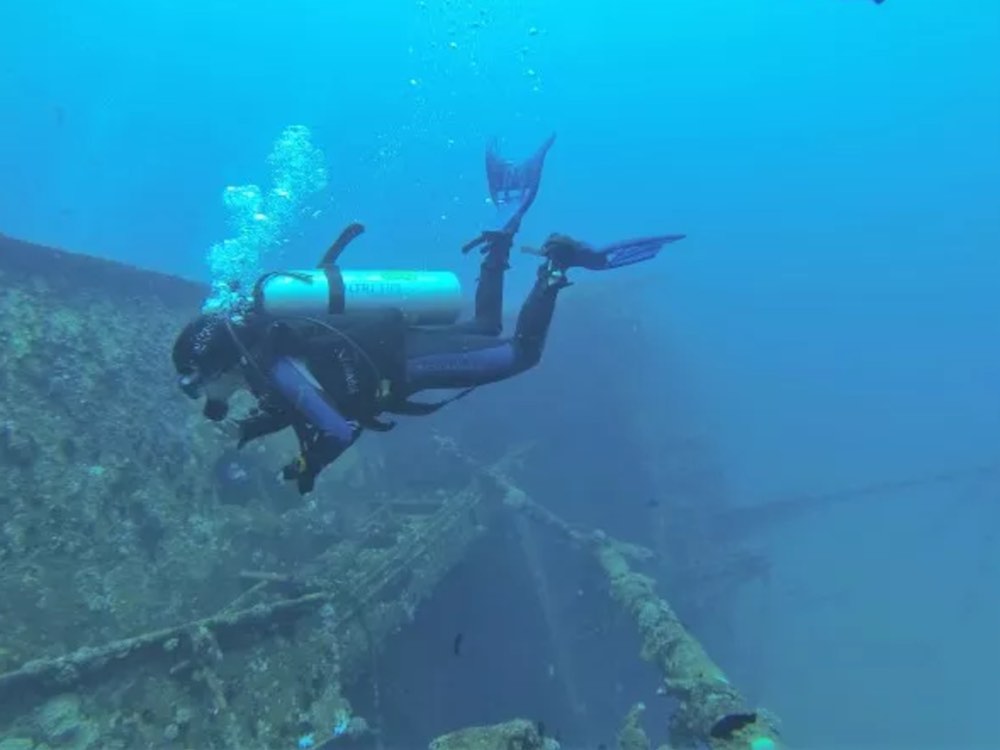Scuba Diving? See a Dentist First

Forget sharks, barracudas or the bends. A big worry of scuba diving may be the dental bill.
A new survey of recreational scuba divers finds that 41 percent report dental problems related to diving. Most of the problems had to do with pain from the increased pressure underwater or from clutching the air regulator too tightly in their mouths, but a few people experienced loosened crowns or cracked fillings.
The survey was limited, but suggests that people should make sure their teeth are in good shape before they go deep, said lead researcher Vinisha Ranna, a student at the University of Buffalo School of Dental Medicine.
"An unhealthy tooth underwater would be much more obvious than on the surface," Ranna said in a statement. "One hundred feet underwater is the last place you want to be with a fractured tooth." [7 Amazing Superhuman Feats]
Underwater toothache
Ranna, a certified stress-and-rescue scuba diver, first became interested in the effect of diving on teeth as a rookie diver in 2013. While underwater, she experienced "barodontalgia," a condition familiar to many divers but less well-known to landlubbers. Barodontalgia is a toothache caused by the increase in pressure felt underwater (it can also happen at high altitudes because of low pressure). The condition, which occurs while the person is in the high- or low-pressure environment, is most common in people who have some sort of underlying dental condition, like a cavity or poorly completed filling.
Ranna developed a survey to find out how common barodontalgia and other dental symptoms might be for scuba divers. She distributed links to the online survey through social media sites for divers and got 100 responses. Because this sample is limited and not random, it isn't representative of scuba divers as a whole.
Forty-one percent of respondents said they'd experienced dental symptoms while diving. Of those, 42 percent said they'd had barodontalgia. The second-most common symptom was pain from holding the air regulator too tightly (24 percent of those who'd had a dental symptom), and the third-most common problem was jaw pain (22 percent of those who'd had a dental symptom).
Sign up for the Live Science daily newsletter now
Get the world’s most fascinating discoveries delivered straight to your inbox.
Protecting your teeth
Five people reported that a crown — a cap that fits over a broken or damaged tooth — had loosened during a dive. One person reported a broken filling.
"The dry air and awkward position of the jaw while clenching down on the regulator is an interesting mix," Ranna said.
Dive instructors reported more pain and problems than casual divers, Ranna and her colleagues reported in November in the British Dental Journal. Instructors spend more time at shallower diving depths, where the changes in pressure are most abrupt, she said.
The small online survey is only a first step. Ranna is now following up with a study group of more than 1,000 divers. Dental safety should get more attention from scuba certification groups, she said.
"Divers are required to meet a standard of medical fitness before certification, but there are no dental health prerequisites," she said.
In the meantime, divers can protect themselves by visiting the dentist before scuba diving to check for decay and other problems.
Original article on Live Science.

Stephanie Pappas is a contributing writer for Live Science, covering topics ranging from geoscience to archaeology to the human brain and behavior. She was previously a senior writer for Live Science but is now a freelancer based in Denver, Colorado, and regularly contributes to Scientific American and The Monitor, the monthly magazine of the American Psychological Association. Stephanie received a bachelor's degree in psychology from the University of South Carolina and a graduate certificate in science communication from the University of California, Santa Cruz.









